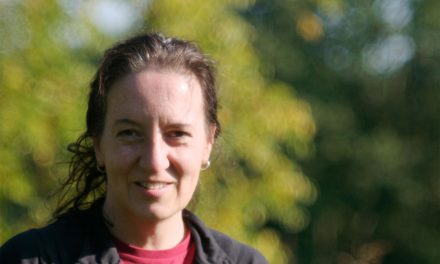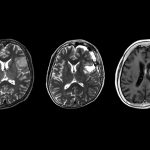
Human Brain Project researchers identify new marker of ALS outcome

A study by Human Brain Project (HBP) researchers has identified a new marker for predicting the clinical outcome of patients with Amyotrophic Lateral Sclerosis (ALS) through magnetoencephalography
This marker can be measured in the brain during its resting state and highlights the importance of brain flexibility for ALS patients.
The study has been led by the Institut de Neurosciences des Systèmes (INS) in Marseille, in collaboration with Consiglio Nazionale delle Ricerche, Parthenope University of Naples and Institute of Diagnosis and Care Hermitage Capodimonte in Naples, and the Monash University in Melbourne.
ALS is a neurodegenerative disease of the brain and spinal cord that causes loss of muscle control. The ability of moving, speaking and, eventually, breathing is progressively impaired. There is no known cure but treatments to improve symptoms, including magnetic stimulation, are being tested.
Pierpaolo Sorrentino, of the INS, explained: “The behaviour of the brain of an ALS patient is often hard to understand.
“The impairments can be caused by neuronal dysfunction of a small area of the brain that influences a much larger area, meaning you need whole brain scans to make predictions of the clinical outcome.
“Patients can struggle with motor tasks during the scans. This new method, instead, can be applied to the brain at rest, making it easier for the patients and more consistent.”
ALS patients
The researchers collected magnetoencephalography data on 42 ALS patients and 42 healthy controls at the University Parthenope in Naples, whose MEG facilities have recently become part of the EBRAINS network.
The new study builds on previous work by the same group, which applied the methodology to Parkinson’s disease.
Sorrentino adds: “A healthy brain is a flexible one, capable of reconfiguring itself to respond to stimuli, triggering neuronal avalanches across different areas.
“Think of it as a goalkeeper waiting for a penalty kick. If you are fast enough, constantly moving rather than standing in the same place is a better strategy for being ready for most possible trajectories.”
Flexibility
Arianna Polverino, of the Institute of Diagnosis and Care Hermitage Capodimonte, is lead author of the study. She said: “The neuronal avalanches spread in patterns which we can monitor with whole-brain scans.
“We call the collection of all unique patterns the ‘functional repertoire’, a measurement of the flexibility of the brain.”
The researchers focused on quantifying the functional repertoire of ALS brains, even when the patient is unprompted and the brain is in a resting state.
She added: “We found that a restriction of the functional repertoire corresponded to a more severe functional impairment. The more flexible the brain, the better the clinical outcome: the functional repertoire can be used as a reliable predictor of how the clinical outlook of a patient will likely evolve.”
Sorrentino explained: “It is often difficult to tell how a particular therapy is working – now we might have a strong marker to predict its outcome.”
The next step, according to the scientists, is to use this non-invasive readout in a longitudinal study that tracks the evolution of the disease in a patient-specific way and adjust treatment accordingly.
Polverino concluded: “The ultimate goal is to apply the predictive power of the functional repertoire in personalised medicine, perhaps extending the same approach to brain dynamics to other, large-scale applications.”
The research is published in Neurology.
Image: Equipment used in the study.
Credit: Arianna Polverino, University Parthenope, Naples.















